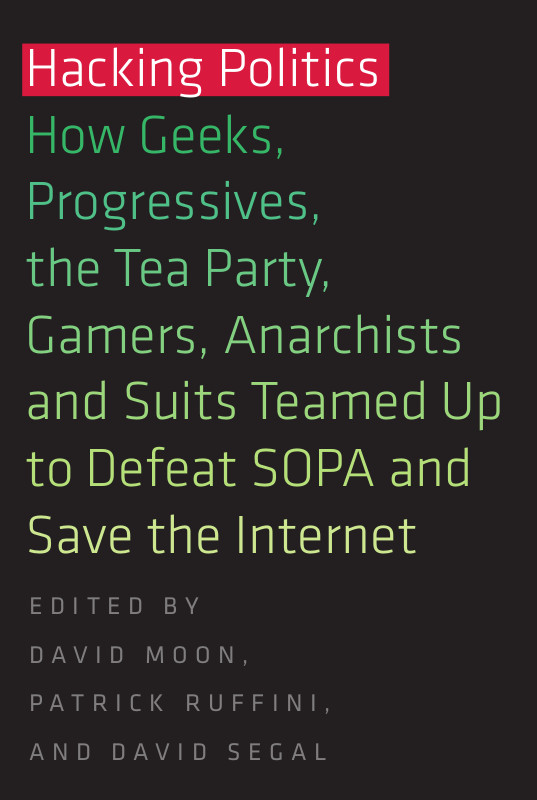Nancy Stout: One Day in December: Celia Sánchez and the Cuban Revolution (2013)
Filed under book | Tags: · biography, cuba, politics, revolution

Celia Sánchez is the missing actor of the Cuban Revolution. Although not as well known in the English-speaking world as Fidel Castro and Che Guevara, Sánchez played a pivotal role in launching the revolution and administering the revolutionary state. She joined the clandestine 26th of July Movement and went on to choose the landing site of the Granma and fight with the rebels in the Sierra Maestra. She collected the documents that would form the official archives of the revolution, and, after its victory, launched numerous projects that enriched the lives of many Cubans, from parks to literacy programs to helping develop the Cohiba cigar brand. All the while, she maintained a close relationship with Fidel Castro that lasted until her death in 1980.
The product of ten years of original research, this biography draws on interviews with Sánchez’s friends, family, and comrades in the rebel army, along with countless letters and documents. Biographer Nancy Stout was initially barred from the official archives, but, in a remarkable twist, was granted access by Fidel Castro himself, impressed as he was with Stout’s project and aware that Sánchez deserved a worthy biography. This is the extraordinary story of an extraordinary woman who exemplified the very best values of the Cuban Revolution: selfless dedication to the people, courage in the face of grave danger, and the desire to transform society.
With a Foreword by Alice Walker
Publisher Monthly Review Press, 2013
ISBN 1583673172, 9781583673171
400 pages
PDF (MOBI)
PDF (alt link, MOBI)
PDF (EPUB, added on 2013-6-5)
Dolores L Augustine: Red Prometheus: Engineering and Dictatorship in East Germany, 1945-1990 (2007)
Filed under book | Tags: · cold war, communism, east germany, engineering, germany, history of science, history of technology, ideology, politics, socialism, soviet union, technology

“In Cold War-era East Germany, the German tradition of science-based technology merged with a socialist system that made technological progress central to its ideology. Technology became an important part of East German socialist identity—crucial to how Communists saw their system and how citizens saw their state. In Red Prometheus, Dolores Augustine examines the relationship between a dictatorial system and the scientific and engineering communities in East Germany from the end of the Second World War through the 1980s.
Drawing on newly opened archives and extensive interviews, and including many illlustrations and photographs that have never before been published, Augustine looks in detail at individual scientists’ interactions with the East German system, examining the effectiveness of their resistance against the party’s totalitarian impulses. She explains why many German scientists and engineers who were deported to the Soviet Union after World War II returned to East Germany rather than defecting to the capitalist West, traces scientists’ attempts to hold on to some aspects of professional autonomy, and describes challenges to their professional identity on the factory floor. Augustine examines the quality of science and technology produced under Communist rule, looking at failed research projects and clashing cultures of innovation. She looks at technological myth-building in science fiction and propaganda. She explores individual career strategies, including the role played by gender in high-tech professions, and the ways that both enterprises and individuals responded to increasing state and party control of research during the 1980s. We cannot understand the economic choices made by East Germany, Augustine argues, unless we understand the cultural values reflected in the East German belief in technology as indispensable to progress and industrial development.”
Publisher MIT Press, 2007
Transformations: Studies in the History of Science and Technology series
ISBN 0262012367, 9780262012362
381 pages
Hacking Politics: How Geeks, Progressives, The Tea Party, Gamers, Anarchists and Suits Teamed Up to Defeat SOPA and Save the Internet (2013)
Filed under book | Tags: · activism, internet, internet activism, law, politics, sopa

“Hacking Politics is a firsthand account of how a ragtag band of activists and technologists overcame a $90 million lobbying machine to defeat the most serious threat to Internet freedom in memory. The book is a revealing look at how Washington works today – and how citizens successfully fought back.
Written by the core Internet figures – video gamers, Tea Partiers, tech titans, lefty activists and ordinary Americans among them – who defeated a pair of special interest bills called SOPA (“Stop Online Piracy Act”) and PIPA (“Protect IP Act”), Hacking Politics provides the first detailed account of the glorious, grand chaos that led to the demise of that legislation and helped foster an Internet-based network of amateur activists.
Included are more than thirty original contributions from across the political spectrum, featuring writing by Internet freedom activist Aaron Swartz; Lawrence Lessig of Harvard Law School; novelist Cory Doctorow; Rep. Zoe Lofgren (D-CA.); Jamie Laurie (of the alt-rock/hip-hop group The Flobots); Ron Paul; Mike Masnick, CEO and founder of Techdirt; Kim Dotcom, internet entrepreneur; Tiffiniy Cheng, co-founder and co-director of Fight for the Future; Alexis Ohanian, co-founder of Reddit; Nicole Powers of Suicide Girls; Josh Levy, Internet Campaign Director at Free Press, and many more.”
Edited by David Moon, Patrick Ruffini, and David Segal
Publisher OR Books, May 2013
ISBN 9781939293046
316 pages
via gnd
publisher (pay-what-you-wish)
PDF
EPUB
PDF, EPUB, MOBI (torrent)

